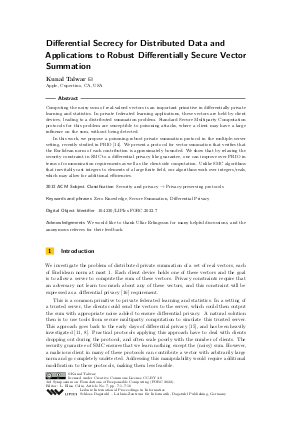LIPIcs.FORC.2022.7.pdf
- Filesize: 0.7 MB
- 16 pages

 Creative Commons Attribution 4.0 International license
Creative Commons Attribution 4.0 International license















Feedback for Dagstuhl Publishing